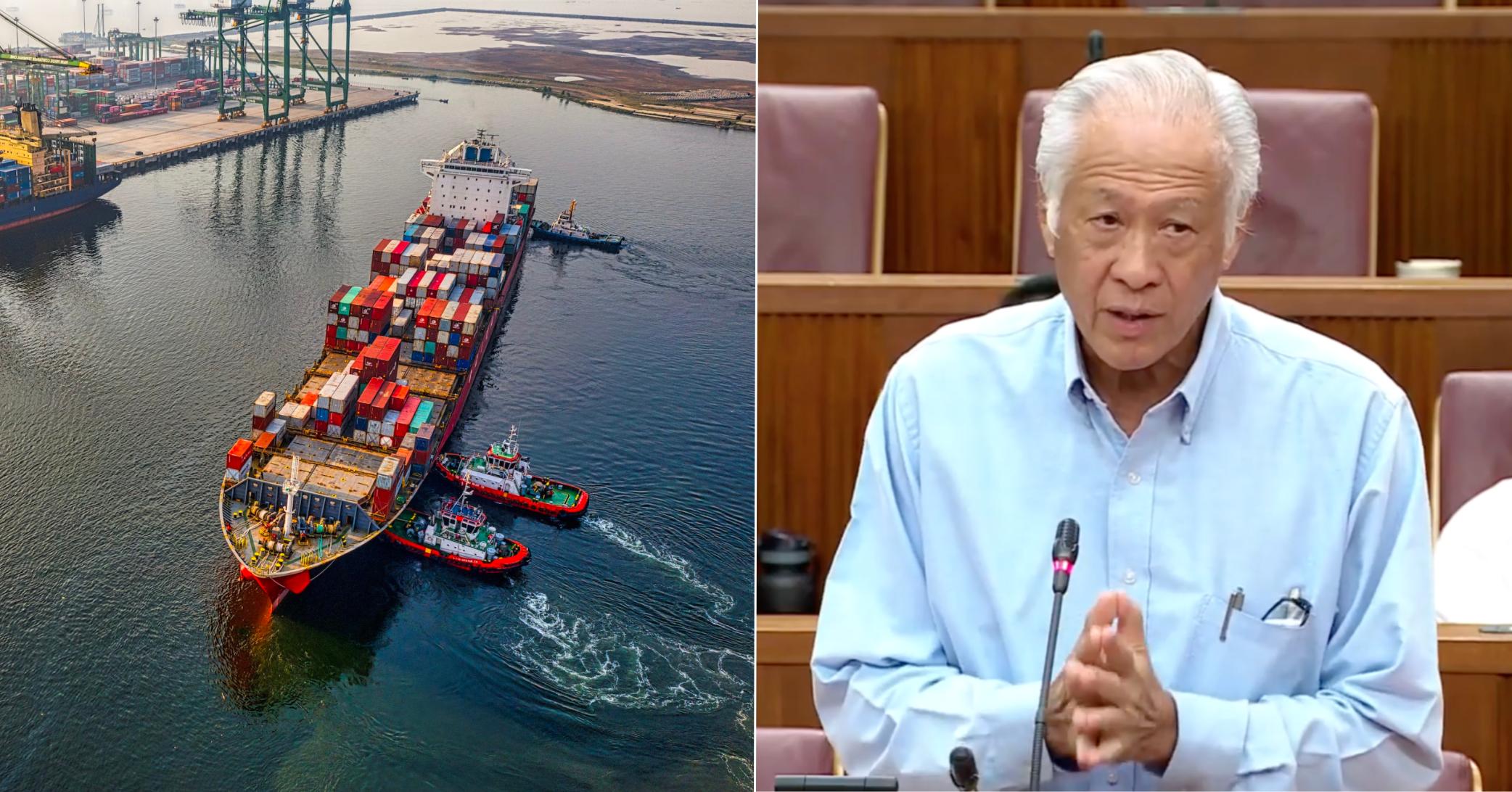The Houthi rebel attacks in the Red Sea have limited immediate impact on Singapore as a majority of Singapore's critical supplies such as food and pharmaceuticals are delivered via air freight or do not pass through the Red Sea shipping route, Minister of Defence Ng Eng Hen said in Parliamentary on Tuesday (Jan. 9).
Ng was answering a question from Member of Parliament for Tampines GRC Desmond Choo, who asked whether escalating tensions in the Red Sea have an impact on Singapore's maritime security and if the Singapore Armed Forces will contribute to multinational efforts to secure the inlet.
A Singapore-flagged Maersk Hangzhou, a container ship owned and operated by Denmark, was recently attacked.
Escalating attacks in recent times
Iranian-backed Islamist group known as Houthi have periodically attacked ships in the Red Sea for years but escalated attacks on commercial ships in the inlet since November last year.
Houthis said their strikes are directed at boats with Israeli interests and will continue their attacks until Israel ends its war in Gaza, according to Council on Foreign Relations (CFR)
Israel is heavily dependent on Red Sea traffic as the majority of its imports and exports travel by sea.
Despite claiming to target only ships with links to Israel, experts cited by CFR claimed that Houthis have targeted ships indiscriminately.
Recently, the rebel group attacked and attempted to board Maersk Hanzhou, but could not due to U.S. military intervention.
Limited immediate impact on Singapore
The current situation in the Red Sea poses a global trade disruption as the maritime route is one of the main trade routes between Asia, the Middle East and Europe.
It is the shortest shipping route between Europe and Asia.
Amid escalating tension in the Red Sea, some shipping lines announced that they would suspend transits through the inlet, Ng said.
The Defence Minister added that the number of ships passing through the Red Sea daily had dropped in recent weeks to about a third of its normal volume.
Singapore-registered ships have also been affected, with the number of daily transits to the Red Sea now approximately half its normal volume.
Ng said that the situation has limited immediate impact on Singapore and that local manufacturers "seem to have sufficient spare inventory to hedge against supply disruptions", though increases in business costs might be of concern.
S'pore to participate in military operation to keep Red Sea safe
While the impact on Singapore's critical supplies is projected to be limited, Ng said that it is in the "interest for Singapore to join cause with the international community to protect and ensure that key SLOC (sea lines of communication) around the world remain open, especially if threatened by unlawful acts by non-state actors or terrorist groups".
Ng stressed the important role of the international community of user states in keeping the Red Sea SLOC open and safe, particularly pointing towards the 39-nation Combined Maritime Force which Singapore has been a member of since 2009.
Ng said that Singapore will participate in Operation Prosperity Guardian by the Combined Task Force 153 of the 39-nation Combined Maritime Forces.
The Singapore Armed Forces (SAF) will deploy a team from the Republic of Singapore Navy's Information Fusion Centre to support information sharing, and a team of planners to work with international partners on operational plans.
A senior national representative will also be sent to the Combined Maritime Forces' headquarters in Bahrain.
Littoral states to step up efforts to end Houthi attacks
In his speech, Ng referred to key principles governing the Straits of Malacca and Singapore Straits from the threat of piracy and sea robbery, which was previously articulated at the 4th Shangri-La Dialogue in June 2005.
These principles are:
- The primary responsibility of maritime security lies with the littoral state.
- International communities and agencies such as the International Maritime Organization (IMO) have a role to play.
- All measures have to be in accordance with international law and respect the sovereignty of the littoral state.
With these in mind, Ng urged for "the littoral states that surround the Red Sea [to] step up efforts to end the unlawful Houthi attacks."
Top image via william07/unsplash and MCI/YouTube

If you like what you read, follow us on Facebook, Instagram, Twitter and Telegram to get the latest updates.



